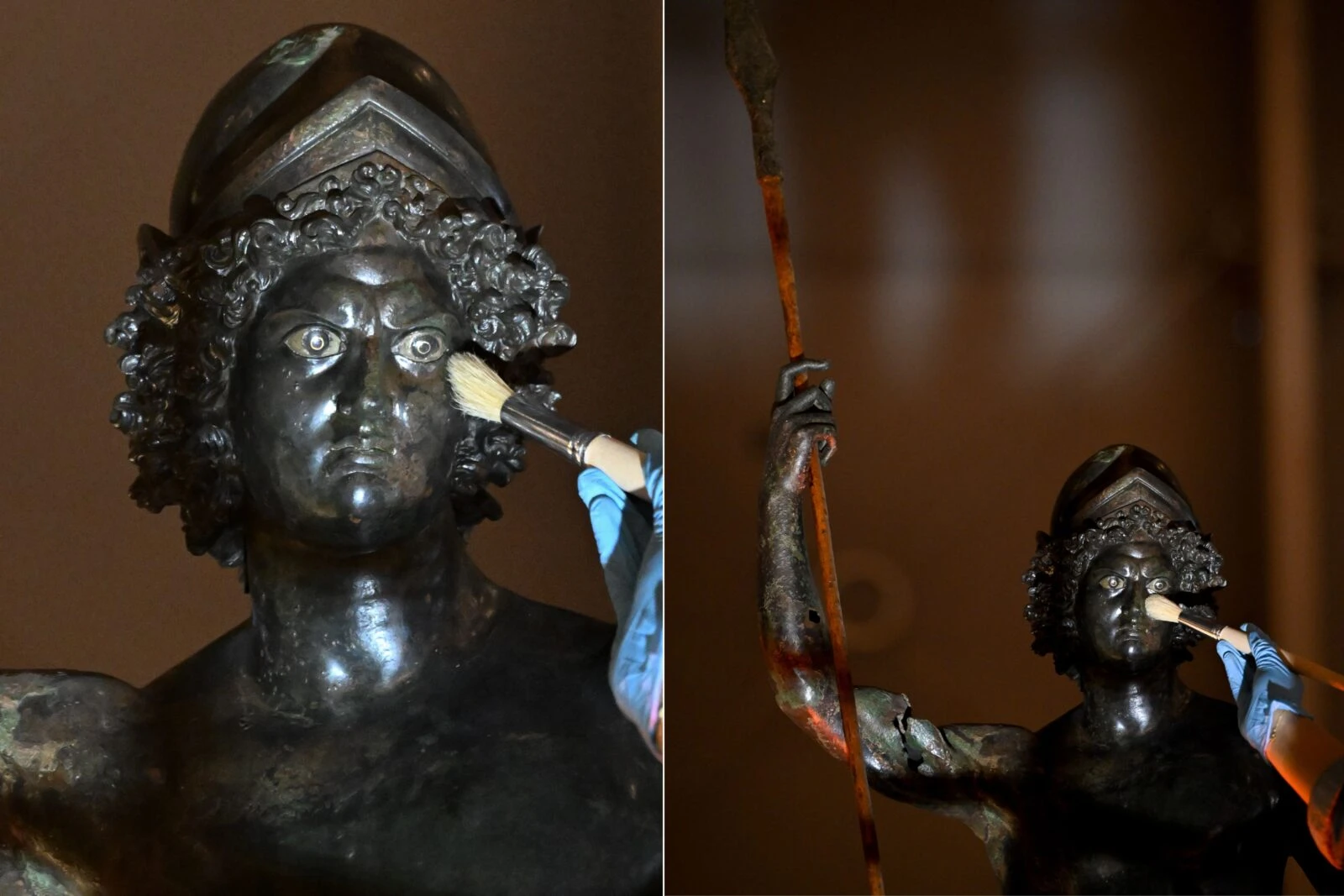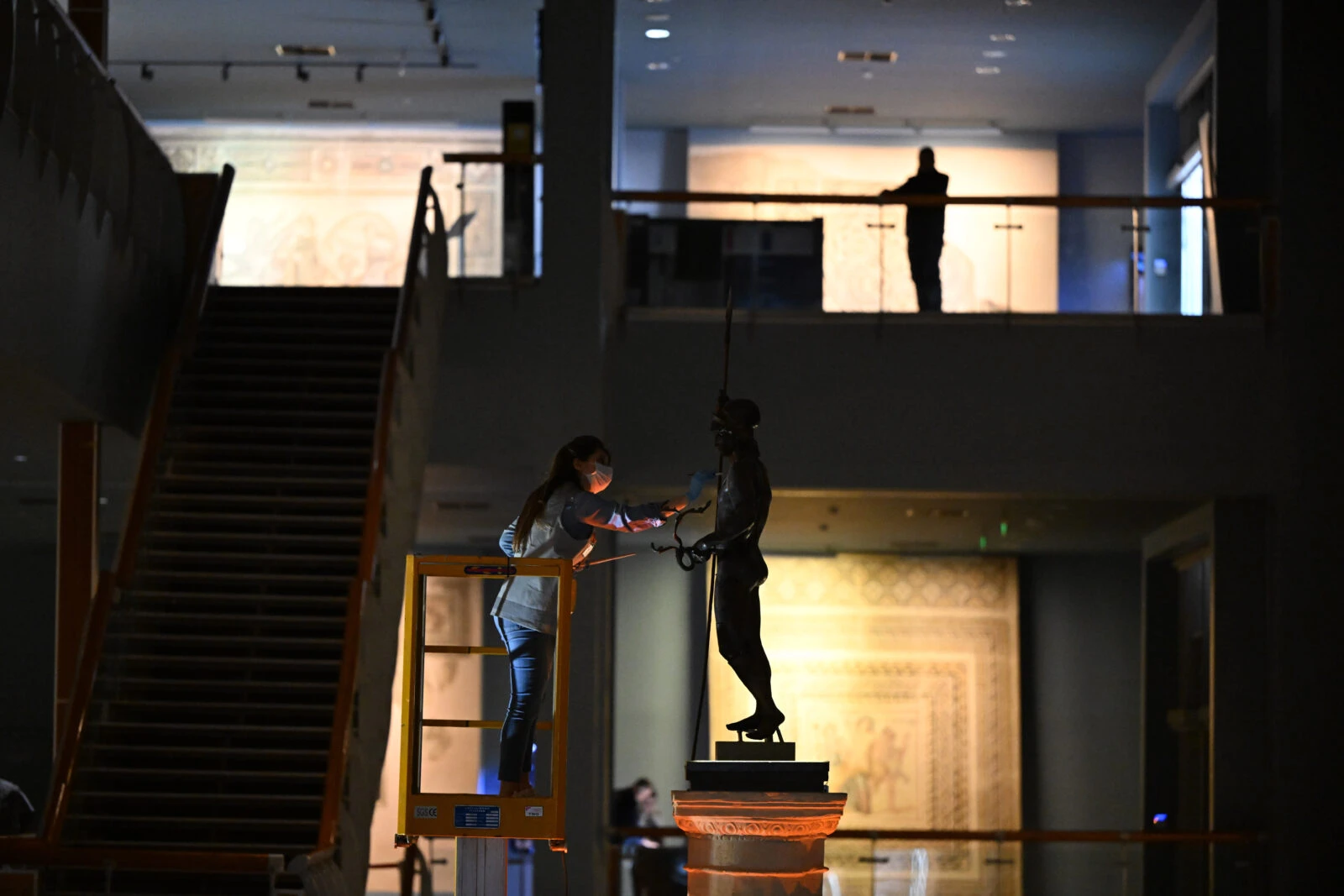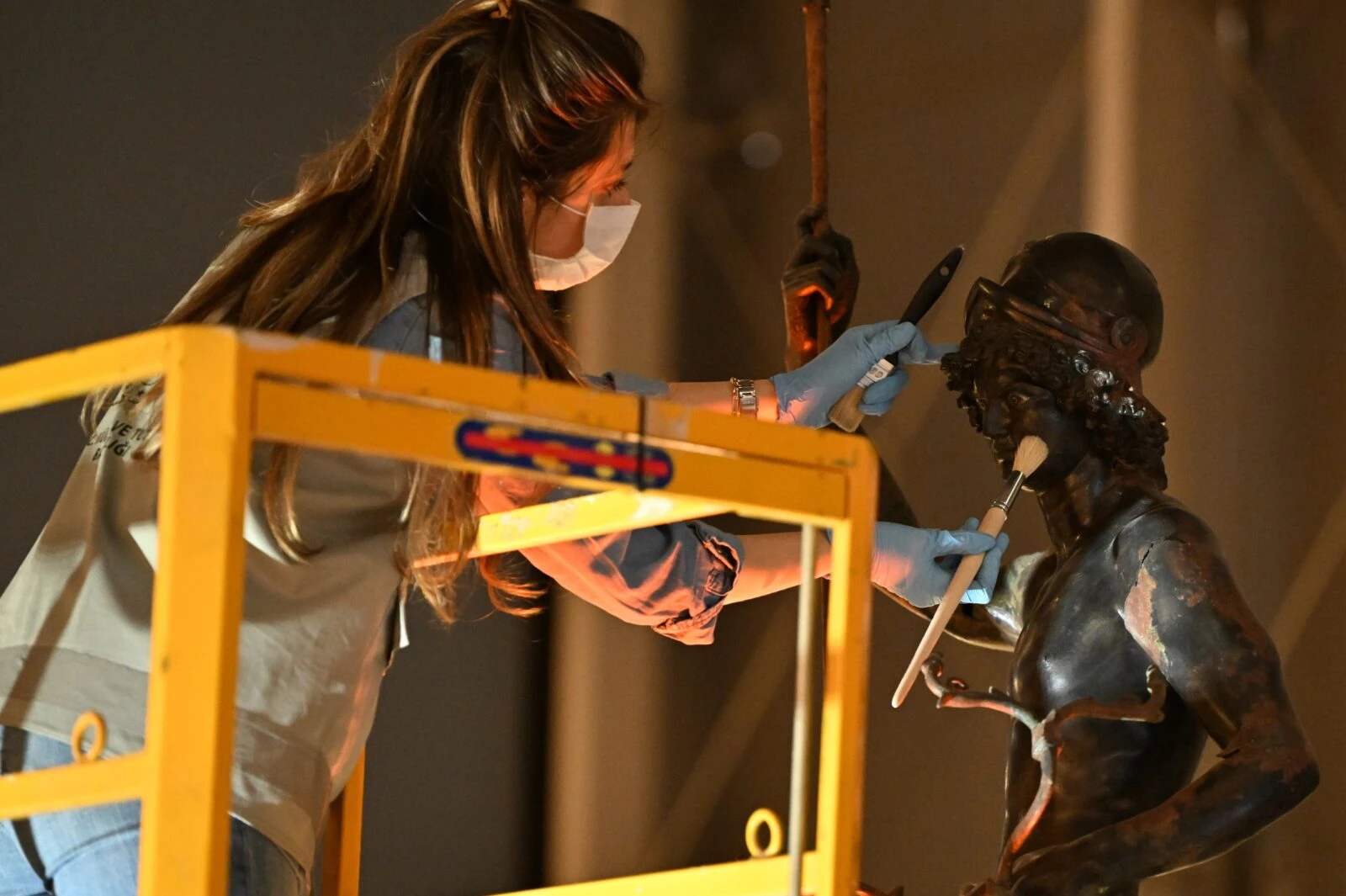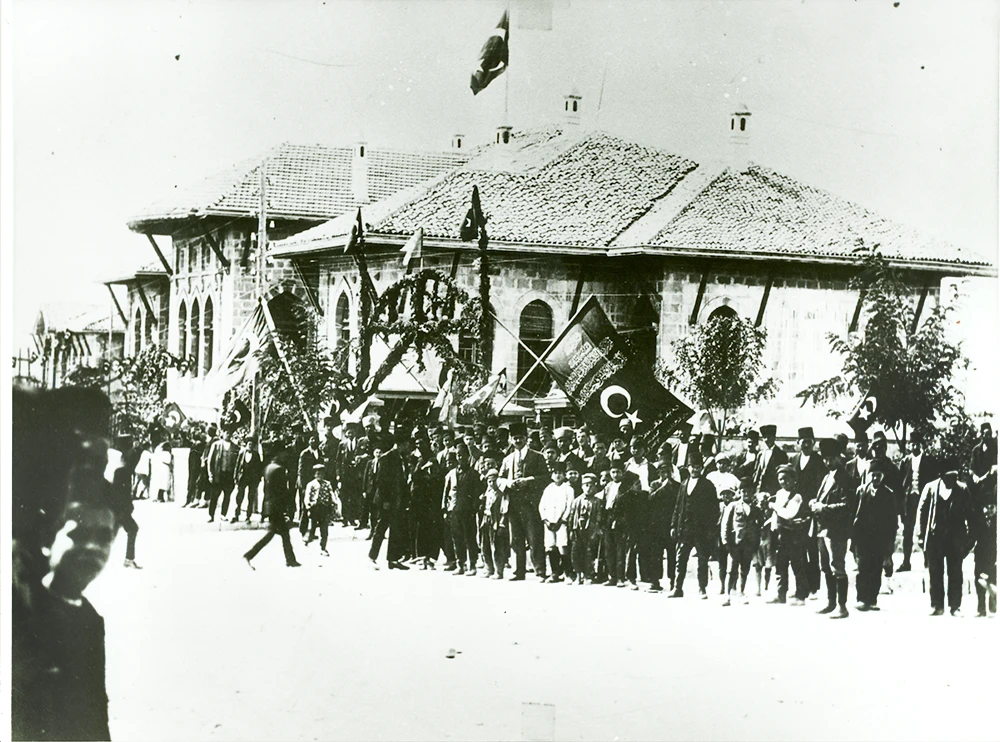Ancient Mars statue draws global attention at Zeugma Mosaic Museum in Türkiye
 The 2,000-year-old bronze statue of Mars, symbolizing fertility and power, is currently on display and carefully preserved by expert restorers at the Zeugma Mosaic Museum in Gaziantep, Türkiye, April 17, 2025. (AA Photo)
The 2,000-year-old bronze statue of Mars, symbolizing fertility and power, is currently on display and carefully preserved by expert restorers at the Zeugma Mosaic Museum in Gaziantep, Türkiye, April 17, 2025. (AA Photo)
A nearly 2,000-year-old bronze statue of Mars, the Roman god of war, is captivating visitors at the Zeugma Mosaic Museum in Gaziantep, southeastern Türkiye. Discovered during excavations at the ancient city of Zeugma in 1999, the statue remains one of the most iconic pieces in the museum’s renowned collection.

Preserved with surgical precision
Standing at approximately 1.5 meters tall, the statue represents power and abundance, holding a spear in one hand and a flower in the other. Its piercing gaze, highlighted by gold and silver inlaid pupils, and sharp facial expression make it a striking centerpiece that has been on display since 2011.
Restorers at the museum are working diligently to preserve the statue for future generations.
Esra Nur Bilici, a restorer at the Gaziantep Museum Directorate, explained that they follow a meticulous maintenance routine: “We regularly clean the dust that accumulates on the surface of the statue. Every three to six months, we conduct detailed inspections to check for corrosion or limestone build-up. If any issue is detected, we immediately begin restoration work. We use minimal chemicals and perform preventive conservation with surgical sensitivity to ensure the statue’s longevity.”

A rare masterpiece of Roman bronze sculpture
According to Gaziantep Museum Director Ozgur Comak, the Mars statue is one of the most important artifacts in the museum’s collection.
“This piece is unique—there is no other known example of a life-sized bronze statue of Mars like this anywhere else in the world,” said Comak.
He added that the statue was mounted on a column, casting a dramatic shadow behind it. Historically, oil lamps were placed near the bunch of plants held by the figure, giving it an additional function as a source of light.

Zeugma’s rising cultural profile
The Zeugma Mosaic Museum, one of the largest mosaic museums in the world, continues to draw art lovers, historians, and tourists from around the globe.
Gold and silver eyes, a spear, and a flower—history in bronze



